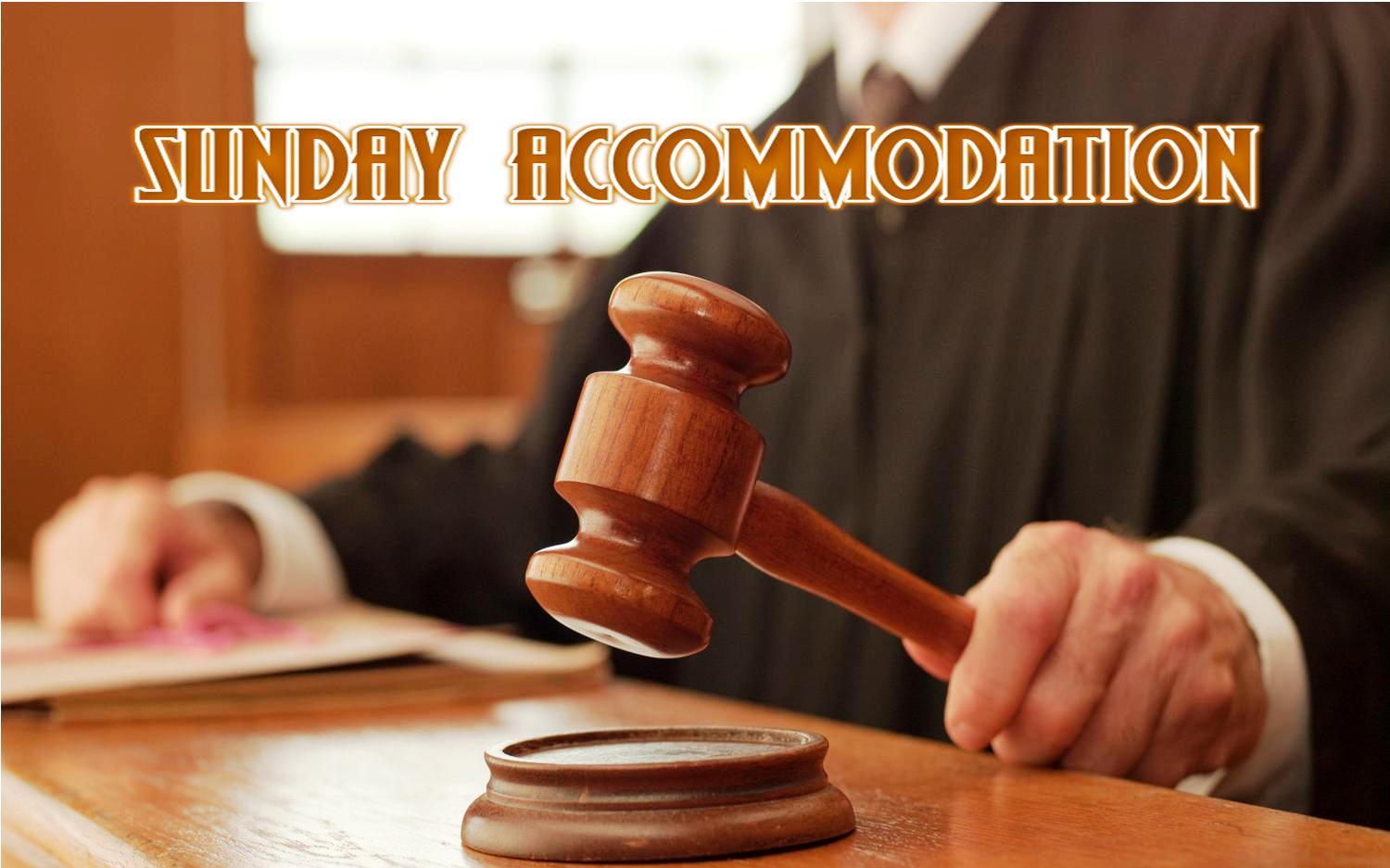
The Equal Employment Opportunity Commission (EEOC) is a federal agency in the United States responsible for enforcing federal laws that prohibit workplace discrimination. This agency has just filed a lawsuit against the IHOP restaurant chain for firing an employee who refused to work on Sundays. The employee had requested a religious exemption that would prevent him from working on Sunday in order to respect his day of worship. His request, however, was turned down. [1]
There are other legal actions aimed at defending Sunday rest that are currently being heard in federal court. Groff v. DeJoy, another similar case currently before the US Supreme Court, involves a worker who lost his job for refusing to deliver mail on Sunday because he maintains that his Christian faith forbids him from working on the so-called “Sabbath.” [2]
What makes these two cases significant is that we are seeing two federal lawsuits, one before the US Supreme Court, in which employees are suing their employers to force them to give them Sundays off. In Groff v. DeJoy, the US Supreme Court justices already heard oral arguments last month, and they will be announcing their decision before the court’s current term ends in late June or early July. Whatever the court decides will often establish binding legal precedents that lower courts are required to follow. These precedents shape the interpretation and application of laws, and depending on the language they use, they will provide consistency all across the United States on how businesses ought to relate to religious accommodations and/or Sunday rest.
The US Supreme Court, like any human organization, is not infallible and can make incorrect decisions. Judges are subject to biases, which can impact decision-making and result in unjust judgments. It has happened before.
1. Dred Scott v. Sandford (1857) – This decision upheld slavery and denied African Americans their citizenship.
2. Korematsu v. United States (1944) – The Court ruled that the internment of Japanese American citizens in detention camps during World War II was constitutional. Even though America was fighting against Germany, Italy, and Japan, only Japanese citizens were interned.
3. Roe v. Wade (1973) – The Court ruled that the Constitution protects a woman’s right to have an abortion, even though the Constitution does not mention abortion. The Fifth Amendment of the Bill of Rights, which is part of the US Constitution, actually defends “life.”
4. Braunfeld v. Brown (1963) – The Court ruled that state laws that required retail businesses to close on Sunday did not violate the First Amendment’s free exercise clause. However, Sunday laws do in fact favor Sunday-keepers while discriminating against seventh-day Sabbath-keepers.
In these cases, the US Supreme Court got it wrong, and in Braunfeld v. Brown (1963), the Court upheld Sunday laws. It is possible that the Roman Catholic majority on the US Supreme Court could go beyond the scope of the Court’s authority by inferring that Sunday is a day of rest for Americans in their ruling. We are aware that the language used in Goff v. Dejoy essentially refers to Sunday as the Sabbath and a day of rest. The Court could overstep its bounds, as it has in the past, by creating a constitutional right (slavery, abortion rights, forced detention camps, and Sunday laws) that does not exist. That is one possible outcome.
Or the Court could limit its arguments to the idea that workers have the right to rest on any day, whether they want their day off on Saturday or Sunday. This would uphold the fact that the Constitution safeguards all sincerely held beliefs. This would be a more consistent interpretation and would protect everyone without favoring one group above another.
Regardless of what happens, two things are certain: 1. The US Supreme Court has not always ruled correctly. They have been wrong before. 2. Sunday rest is something that will become more popular as we get closer to the Mark of the Beast crisis. The churches and clergy will support any efforts to restrict Sunday labor.
“If the people can be led to favor a Sunday law, then the clergy intend to exert their united influence to obtain a religious amendment to the Constitution, and compel the nation to keep Sunday” (Review and Herald, December 24, 1889).
Sources
[1] https://www.eeoc.gov/newsroom/eeoc-sues-charlotte-ihop-religious-discrimination-and-retaliation
I am the Religious Liberty leader at my church and plan to share this information with my church.
This isn’t all a coincidence, in my opinion. The Christian community supports these cases, not only for the religious liberty side, but also for the Sunday sanctity aspect.
The Sunday question is being agitated. It won’t be long, and when it comes, how many of our own people will become Sunday-keepers just to get along and go along with the powers that be?